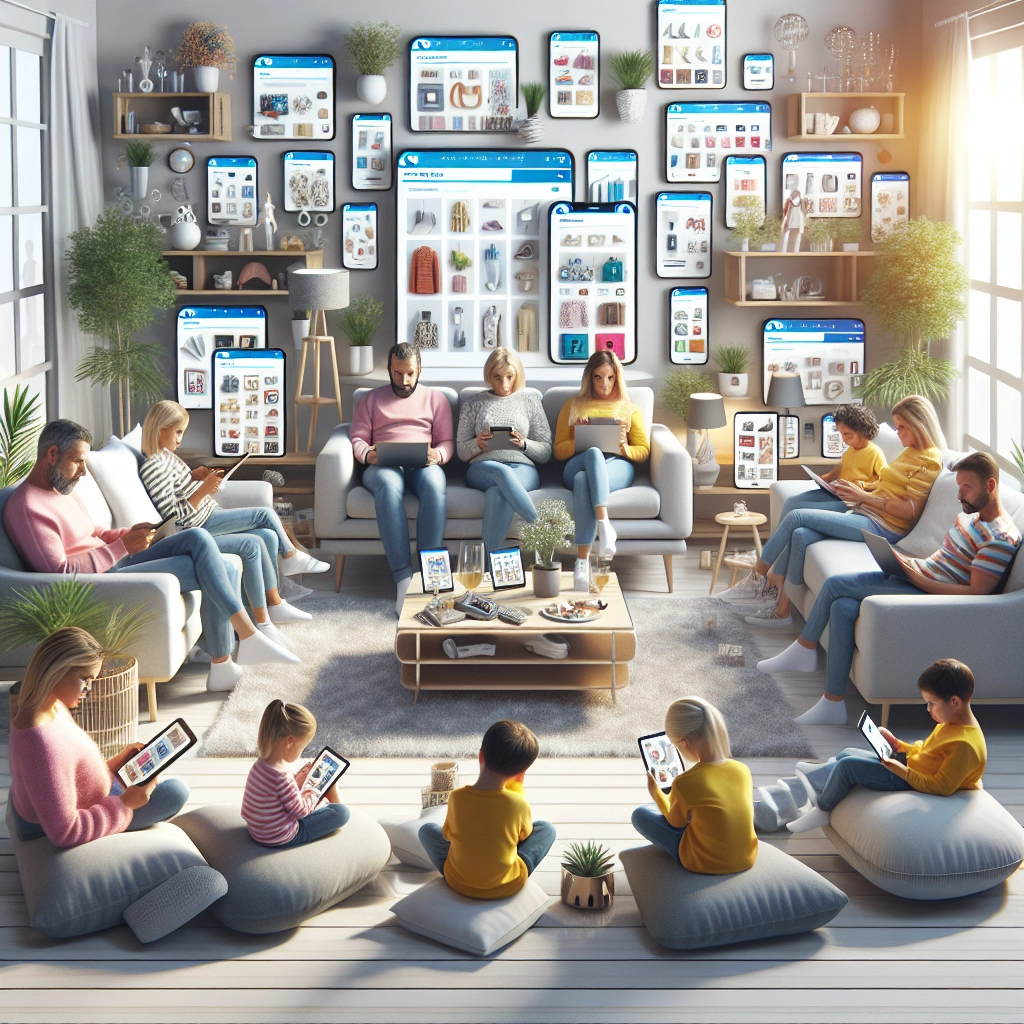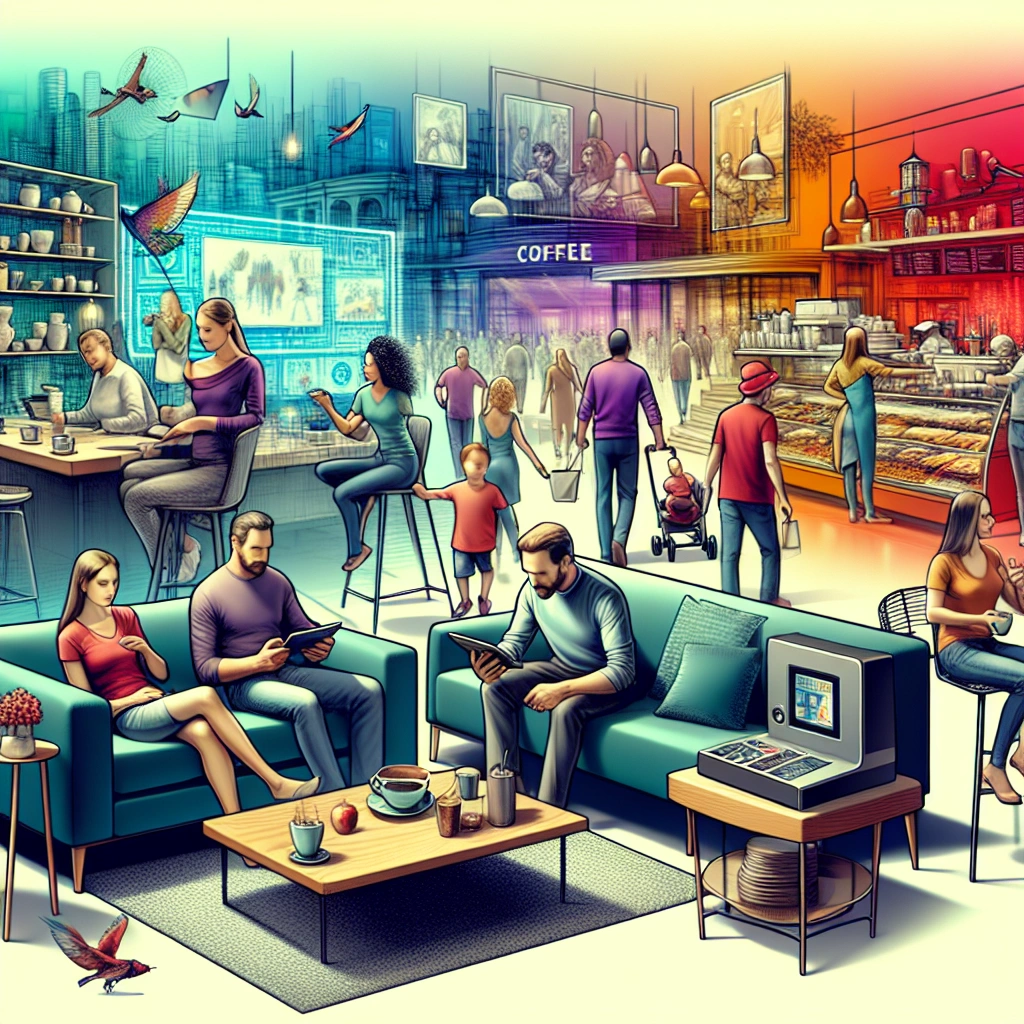

User personalization in digital marketing refers to the practice of tailoring content and messaging to individual customers based on their preferences and behavior.
It is an important strategy in digital marketing because it helps marketers create more relevant and engaging experiences for their customers, leading to increased customer satisfaction, engagement, and loyalty.
By understanding the needs, preferences, and interests of their customers, businesses can serve them with personalized content and messages that make them feel valued and understood.
Check out this Youtube video: Learn how to enhance your experience with Dynamics NAV through user personalization.
Understanding User Personalization
What is user personalization?
User personalization refers to the practice of tailoring content, products, or services to individual user preferences and behaviors. It involves analyzing data such as user demographics, past interactions, and purchase history to provide a customized experience.
This can include personalized recommendations, targeted content, and adaptive user interfaces, creating a more engaging and relevant experience for the user.
How does user personalization work?
User personalization works through the collection and analysis of user data to understand individual preferences and behaviors. By leveraging technologies such as machine learning and artificial intelligence, businesses can create algorithms that predict user preferences and deliver personalized content in real-time.
This can include personalized product recommendations on e-commerce platforms, tailored content on websites, and customized email marketing based on user behavior.
The role of data in user personalization
Data plays a crucial role in user personalization by providing insights into user behavior, preferences, and engagement patterns. By collecting and analyzing data such as browsing history, purchase behavior, and demographic information, businesses can create detailed user profiles.
These profiles enable the delivery of personalized experiences and targeted marketing efforts that resonate with individual users, ultimately enhancing user satisfaction and loyalty.
Benefits of user personalization for businesses
User personalization offers several benefits for businesses, including improved customer engagement, higher conversion rates, and increased customer loyalty. By delivering personalized experiences, businesses can strengthen customer relationships, increase customer lifetime value, and drive repeat purchases.
Moreover, personalized marketing efforts can lead to higher click-through rates and improved campaign performance, resulting in a more effective and efficient marketing strategy.
| Benefits of User Personalization |
|---|
| Improved customer engagement |
| Higher conversion rates |
| Increased customer loyalty |
User personalization revolves around understanding user preferences and behaviors to provide tailored experiences, improving customer engagement, and driving business growth through targeted marketing efforts. By leveraging data-driven insights, businesses can create personalized experiences that resonate with individual users, ultimately leading to enhanced customer satisfaction and business success.
Implementing User Personalization
Creating personalized user experiences
- Creating personalized user experiences involves tailoring the user journey based on their preferences and behaviors. For example, a fashion website can provide personalized recommendations for outfits based on the user’s past searches and purchases. This creates a more engaging and relevant experience for the user, increasing the likelihood of conversion and satisfaction.
Leveraging technology for user personalization
- Leveraging technology for user personalization includes utilizing AI and machine learning algorithms to analyze user data and provide tailored recommendations. For instance, an e-commerce platform can use AI to analyze user behavior and provide personalized product suggestions, improving the overall user experience and boosting sales.
Tailoring product recommendations to individual users
- Tailoring product recommendations to individual users involves analyzing their browsing history and purchase behavior to provide personalized product suggestions. For example, a streaming service can recommend movies or shows based on the user’s viewing history, creating a more personalized and enjoyable experience.
Customizing marketing content based on user behavior
- Customizing marketing content based on user behavior entails crafting targeted marketing campaigns tailored to individual user preferences. For example, an online retailer can send personalized email promotions based on the user’s browsing and purchase history, increasing the likelihood of engagement and conversion.
| User Personalization Strategies | Examples |
|---|---|
| Geo-targeting | Displaying location-based content and offers. |
| Personalized Recommendations | Offering product or content suggestions tailored to the user’s behavior. |
| Analyzing User Behavior | Using data to customize marketing efforts and user experiences. |
User Personalization in E-commerce
User personalization strategies for e-commerce websites
Personalized Product Recommendations: Utilize customer browsing and purchase history to recommend products tailored to their interests.
Customized Email Campaigns: Send personalized emails based on user preferences and behavior to increase engagement and conversions.
Dynamic Content Creation: Utilize user data to personalize website content, such as landing pages and product listings, for a more relevant user experience.
Targeted Promotions and Discounts: Offer personalized discounts and promotions based on user behavior and purchase history to drive sales.
Interactive Product Filters: Implement interactive filters to help users find products based on their specific preferences and browsing history.
The impact of user personalization on conversion rates
Increased Customer Engagement: User personalization leads to higher customer engagement as it provides custom-tailored experiences, leading to increased conversions.
Enhanced Customer Satisfaction: By delivering relevant content and products, user personalization enhances customer satisfaction, resulting in a higher likelihood of conversion.
Improved Sales Conversion Rates: User personalization can significantly improve sales conversion rates by presenting customers with offers and content that are more likely to convert.
Maximized Marketing Efforts: Brands offering personalization at scale see a reduction in marketing costs, leading to improved ROI and overall business performance.
Case studies of successful e-commerce personalization efforts
-
Amazon: Utilizes personalized product recommendations and targeted promotions, achieving significant results in customer engagement and sales.
-
Sephora: Implements personalized email campaigns and dynamic content creation, leading to increased customer satisfaction and repeat purchases.
-
Gymshark: Successfully applies user personalization strategies, resulting in improved conversion rates and enhanced customer loyalty.
-
Casper: Utilizes targeted promotions and interactive product filters, driving higher user engagement and sales.
-
Warby Parker: Leverages user personalization to deliver customized experiences, leading to increased customer satisfaction and brand loyalty.
| Company | Strategy | Result |
|---|---|---|
| Amazon | Personalized recommendations | Increased customer engagement and sales |
| Sephora | Customized email campaigns | Enhanced customer satisfaction and repeat purchases |
| Gymshark | Dynamic content creation | Improved conversion rates and customer loyalty |
| Casper | Targeted promotions | Higher user engagement and sales |
| Warby Parker | Interactive product filters | Increased customer satisfaction and brand loyalty |
By implementing effective user personalization strategies and drawing inspiration from successful case studies, e-commerce businesses can create tailored experiences that drive higher conversion rates and foster long-term customer relationships.
User Personalization in Content Marketing
Personalizing content recommendations for website visitors
Personalizing content recommendations for website visitors is crucial for creating a personalized and engaging user experience. By leveraging user data such as browsing history, purchase behavior, and demographic information, websites can tailor content recommendations to the specific interests and preferences of each visitor.
For example, Amazon uses personalized product recommendations based on a user’s previous purchases and viewed items, enhancing the chances of conversion and customer satisfaction.
Using user data to create targeted email marketing campaigns
Utilizing user data to create targeted email marketing campaigns allows businesses to send relevant and personalized content directly to the subscriber’s inbox. By segmenting the email list based on user behavior and preferences, companies can deliver tailored content, promotions, and product recommendations that resonate with each recipient.
For instance, a clothing retailer can send personalized emails featuring recommended products based on a customer’s past purchases and browsing activity, increasing the likelihood of engagement and conversions.
The effectiveness of personalized content in driving engagement
The effectiveness of personalized content in driving engagement is evident in the significant uplift in customer interactions and conversions. Studies have revealed that personalized web experiences lead to double-digit returns in marketing performance and response rates.
Moreover, personalized content drives repeat engagement and loyalty over time. For example, companies implementing personalization strategies have observed higher customer loyalty and increased revenue, showcasing the direct impact of personalized content on driving engagement and long-term customer relationships.
| User Personalization Benefits |
|---|
| 1. Enhanced User Experience |
| 2. Increased Customer Loyalty |
| 3. Improved Conversion Rates |
User personalization plays a pivotal role in content marketing by tailoring recommendations, email campaigns, and overall content to the specific interests and preferences of individual users. By leveraging user data effectively, businesses can create targeted and personalized experiences that drive engagement, loyalty, and ultimately lead to improved business outcomes.
User Personalization in Social Media
Personalizing social media ads based on user preferences
User personalization in social media ads involves tailoring the content of ads to align with the specific preferences and behaviors of individual users. For example, a user who frequently engages with fitness-related content may be shown ads for workout gear or protein supplements.
Similarly, a user who has previously interacted with cooking videos may see ads for kitchen appliances or recipe books. This level of personalization enhances the relevance of advertisements, increasing the likelihood of user engagement and conversion.
Implementing user personalization in social media algorithms
Implementing user personalization in social media algorithms entails utilizing data and artificial intelligence to deliver tailored content to individual users. By analyzing user data such as actions, behaviors, and interests, social media platforms can curate content that resonates with each user on a personal level.
This approach can lead to improved user engagement, as individuals are more likely to interact with content that aligns with their specific preferences and interests.
The impact of personalized social media content on user engagement
Personalized social media content has a significant impact on user engagement, leading to improved interaction and conversion rates. When users encounter content that resonates with their interests, they are more likely to engage with it, leading to increased website traffic, higher open rates for email campaigns, and enhanced social media engagement.
By tailoring content to specific segments of the audience, businesses can cultivate a loyal customer base and drive higher sales, ultimately boosting overall user engagement and brand interaction.
| Personalized social media ads | |
|---|---|
| Definition | Tailoring ad content to align with individual user preferences |
| Example | Displaying fitness-related ads to users engaging with workout content |
| Impact | Increased likelihood of user engagement and conversion |
Max De Pree once said, “We need to give each other the space to grow, to be ourselves, to exercise our diversity. We need to give each other space so that we may both give and receive such beautiful things as ideas, openness, dignity, joy, healing, and inclusion.” This quote aptly captures the essence of user personalization, emphasizing the importance of recognizing and respecting individual preferences in the digital space.
User personalization plays a pivotal role in shaping the dynamics of social media engagement and advertising. By tailoring content and ads to align with individual user preferences, businesses can foster meaningful interactions, drive conversions, and cultivate a loyal customer base.
Embracing user personalization in social media algorithms is not merely a trend but an indispensable strategy for enhancing user engagement and brand interaction. As the digital landscape continues to evolve, prioritizing user personalization will be integral to staying relevant and competitive in the realm of social media marketing.
User Personalization in Customer Service
Tailoring Customer Service Experiences to Individual Needs
By understanding the unique preferences and requirements of each customer, businesses can tailor their service experiences to match individual needs. For instance, offering customized product recommendations based on previous purchases or providing personalized discounts and promotions can greatly enhance the customer experience.
Utilizing User Data to Provide Personalized Support
Utilizing user data effectively allows businesses to anticipate customer needs and preferences, enabling them to offer tailored support. For instance, analyzing customer interactions and feedback can help in providing proactive and personalized assistance, leading to higher customer satisfaction and loyalty.
The Role of User Personalization in Building Customer Loyalty
User personalization plays a fundamental role in building customer loyalty by creating a sense of value and appreciation for each individual. When customers receive personalized experiences, they are more likely to trust the brand, feel satisfied, and ultimately become loyal advocates, leading to increased retention and long-term business success.
Ethical Considerations in User Personalization
Balancing personalization with user privacy
To balance personalization with user privacy, it’s crucial to prioritize transparency and informed consent. This means clearly communicating to users how their data will be used for personalization and obtaining their explicit consent before doing so.
Additionally, implementing robust privacy measures like data encryption and secure storage can help maintain user trust while delivering personalized experiences.
Avoiding pitfalls of overly invasive personalization tactics
To avoid pitfalls of overly invasive personalization tactics, it’s essential to set limits on data collection and use. Companies should refrain from collecting excessive personal information and ensure that the data collected is directly relevant to providing valuable personalized experiences.
Moreover, respecting user preferences and offering clear opt-out options can help prevent the use of intrusive personalization strategies.
The future of ethical user personalization practices
The future of ethical user personalization practices lies in leveraging emerging technologies like AI and machine learning to provide personalized experiences while upholding user privacy. By prioritizing ethical design and data security, businesses can ensure that user personalization remains respectful and transparent, aligning with evolving privacy regulations and user expectations.
| Pros | Cons |
|---|---|
| Enhanced user engagement | Potential for privacy breaches |
| Tailored user experiences | Increased regulatory scrutiny |
| Respect for user autonomy | Risk of user data misuse |
| Building trust and loyalty | Ethical dilemmas in data collection |
Ensuring ethical considerations in user personalization involves a delicate balance between offering personalized experiences and respecting user privacy. By embracing transparency, informed consent, and responsible data practices, businesses can navigate the complexities of personalization ethically and sustainably.
Measuring the Success of User Personalization
While tracking the success of user personalization, it’s crucial to focus on specific key performance indicators (KPIs). These KPIs include Average Revenue Per User (ARPU), Cart Abandonment, Churn Rate, and Click-Through Rate (CTR).
These metrics offer valuable insights into the effectiveness of personalized user experiences and their impact on business goals.
When it comes to tracking user personalization metrics, leveraging advanced tools and technologies is essential. Some of the prominent tools and technologies for this purpose include Google Analytics, Mixpanel, Optimizely, VWO, and customer relationship management (CRM) software.
These tools enable businesses to measure and optimize their personalization strategies effectively.
Analyzing the impact of user personalization on overall business goals requires a comprehensive approach. By defining clear KPIs such as engagement rates, conversion rates, customer lifetime value, and customer satisfaction, businesses can assess the direct influence of personalized user experiences on achieving their overarching business objectives.
| Key performance indicators | Tools and technologies |
|---|---|
| Average Revenue Per User (ARPU) | Google Analytics |
| Cart Abandonment | Mixpanel |
| Churn Rate | Optimizely |
| Click-Through Rate (CTR) | VWO |
When these elements are carefully considered and integrated, businesses can gain a deeper understanding of user behavior, preferences, and engagement levels, allowing them to refine their user personalization strategies for sustainable business growth.
Overcoming Challenges in User Personalization
Addressing common obstacles in implementing user personalization
One of the common obstacles in implementing user personalization is the lack of comprehensive customer data. Without access to accurate and relevant data, businesses struggle to understand the individual needs and preferences of their customers.
Strategies for personalizing user experiences in a crowded digital landscape
In a crowded digital landscape, a key strategy for personalizing user experiences is to leverage AI and machine learning algorithms. These technologies enable businesses to analyze vast amounts of data, understand customer behavior patterns, and make personalized recommendations, thereby standing out in the digital cacophony.
The role of AI and machine learning in overcoming personalization challenges
AI and machine learning play a pivotal role in overcoming personalization challenges by enabling businesses to hyper-personalize the customer experience using data. By gathering and analyzing extensive customer data, organizations can tailor their offerings to meet individual preferences, ensuring a more personalized and impactful interaction.
| Common Obstacles | Strategies | Role of AI and Machine Learning |
|---|---|---|
| Lack of customer data | Leveraging AI and ML algorithms | Hyper-personalizing customer experience |
| Inaccurate customer understanding | Analyzing vast data patterns | Tailoring offerings to individual preferences |
Examples of User Personalization Best Practices
Case studies of brands successfully implementing user personalization
- Muji, the Japanese lifestyle brand, has successfully implemented real-time personalized marketing strategies. They integrated data from their mobile app, website, and stores to analyze consumers’ online and offline behavior patterns. This allowed them to understand individual preferences and levels of engagement, leading to more personalized experiences for their customers.
Industry-specific examples of effective user personalization strategies
- Pull&Bear, a fashion retailer, has effectively implemented personalized user experiences through navigational personalization. By analyzing user data, they have provided personalized experiences without compromising user privacy, making it an effective industry-specific user personalization strategy.
Testimonials from users who have benefited from personalized experiences
- According to a 2021 McKinsey report, 76% of consumers get frustrated when they can’t find a personalized experience with a brand. This indicates the significant impact personalized experiences have on user satisfaction and loyalty. Additionally, Amazon, Netflix, and Spotify are excellent examples of platforms that have successfully leveraged personalized experiences to enhance user satisfaction and retention.
The Future of User Personalization
Emerging trends in user personalization
The emerging trends in user personalization indicate a shift towards increased reliance on first-party data and a move away from third-party cookies. Businesses are leveraging technologies such as facial recognition and zero-party data to understand and cater to individual customer needs more effectively.
Predictions for the future of personalized digital experiences
Future digital experiences are predicted to be hyper-personalized, offering tailor-made content and services based on intricate individual preferences. Advances in technology, data, and analytics will enable marketers to create deeply personalized and “human” experiences across various touchpoints, ensuring maximum engagement and satisfaction.
The evolving role of user personalization in consumer behavior
User personalization is evolving to become a pivotal factor in shaping consumer behavior. Businesses are recognizing that personalized content and experiences are essential in maintaining relevance and engaging their audience.
The significance of personalization in driving customer loyalty and improving overall performance cannot be overstated.
Recommended Amazon Products for Personalized Digital Experiences
Here’s a curated list of products that can help you achieve personalized digital experiences with ease. These recommendations are based on functionality, user reviews, and brand popularity.
Smart Digital Photo Frame


The smart digital photo frame is a great way to display personalized digital experiences with easy photo uploads and customizable display options. It allows users to showcase their favorite memories and moments in a personalized way.
A popular choice with positive reviews for its ease of use and sleek design.
Customizable Travel Mug


A customizable travel mug is a practical and personalized product for enjoying beverages on the go. Users can personalize the design, color, and even add their name or favorite quote, making it a unique and thoughtful gift.
The durable and insulated features of this mug make it a popular choice among users.
Personalized Name Necklace


A personalized name necklace is a stylish accessory that allows users to showcase their individuality. With customizable font styles and materials, users can create a unique piece of jewelry that reflects their personal style.
This product has garnered positive reviews for its quality and sentimental value.
Custom Photo Calendar


A custom photo calendar is a practical and personalized way to organize and display important dates and memories. Users can include their favorite photos for each month, adding a personal touch to their planning.
This product is a popular choice for its customization options and high-quality printing.
Personalized Leather Journal


A personalized leather journal is a timeless and elegant product for capturing thoughts, ideas, and memories. Users can customize the cover with their name, initials, or a meaningful quote, adding a personal touch to their writing experience.
This journal has received rave reviews for its durability and classic design.
Top Recommended Product for Personalized Digital Experiences
If you’re looking for the best solution for personalized digital experiences, we highly recommend the Smart Digital Photo Frame. Here’s why:


| Pros | Cons |
|---|---|
| Easy photo uploads | Higher price point |
| Customizable display options | Requires power source |
| Positive user reviews | Limited size options |
Ready to improve your personalized digital experiences? Check out the Smart Digital Photo Frame today for the best results!


Conclusion
User personalization is crucial for creating a more customized and tailored experience for individuals. By analyzing user data and preferences, companies can better understand their users and provide relevant content or recommendations.
Moreover, user personalization can lead to improved customer satisfaction and loyalty, as individuals feel more valued when their specific needs and interests are being addressed.
User personalization is a powerful tool for businesses to enhance user engagement, drive conversions, and Improve their bottom line. By prioritizing the individual preferences and behaviors of their users, companies can create a more meaningful and impactful experience for their audience.













